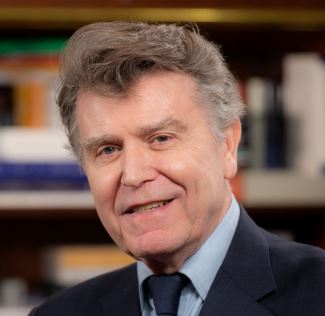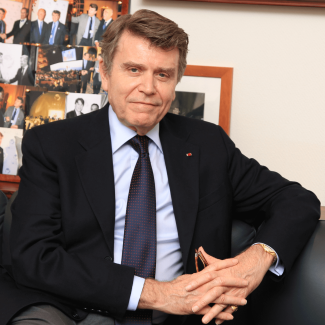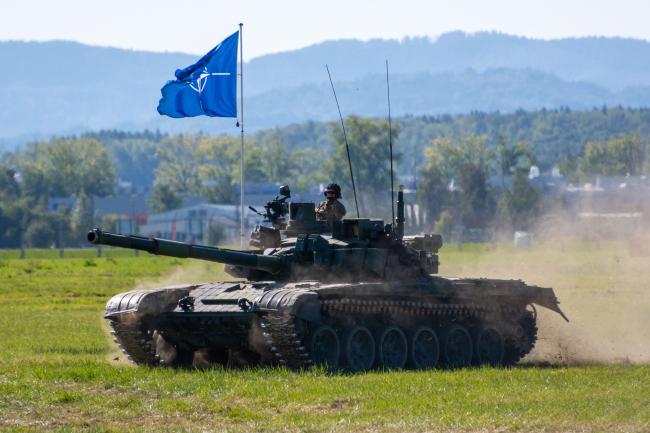Europe in the World: for a Modest and Effective Reform

This sad year ends with a pandemic that continues in full swing over a large part of the planet, especially in the United States and Europe, with no other reassuring prospect than that of one or more vaccines, which is already a lot. But that’s not the subject I want to focus on in this eighth letter, the last one for 2020. Internationally, two other facts have dominated the scene in recent months.
The first is the major turning point of the West vis-à-vis China, in the wake of Donald Trump’s offensive against Xi Jinping. Even in 2019, Europeans weren’t thinking in terms of a “Chinese threat”, even if many were beginning to worry about Chinese groups taking over a growing number of technology companies on the old continent. The deterioration in perceptions became evident during the tour of Minister Wang Yi and State Councillor Yiang Jiechi at the end of the summer. Certainly, the emergence of a sense of fear vis-à-vis the Middle Kingdom is also due to the change in tone of the Chinese leadership since the accession of Xi Jinping and the consolidation of his power. China’s leadership no longer hesitates to assert its desire for power beyond a mollifying discourse on the virtues of multilateralism, at a time when the United States was becoming more and more unilateral.
The second fact is obviously the election of the Biden-Harris tandem as President/Vice-President of the United States (as in my last letter, I insist on this notion of tandem), of which we can expect a return to good manners in the United States’ conduct of its foreign policy, but certainly not a softening in the face of China. Some, like my illustrious friend Joe Nye, a great artisan of concepts among which soft power has gained wide acceptance among political scientists, want to believe in the possibility of competitive rivalry, without major conflict over time around issues, the main one being Taiwan. I fear this will be wishful thinking, at least if China’s technological and economic rise continues to the point where the United States will soon be relegated to the second most powerful world power. Already the technological decoupling between the two superpowers has started.
The prospect of a deepening new Cold War is not just a concern for Europeans. I was able to see directly, in recent high-level meetings (virtual, unfortunately) with mostly Asian participants, that many countries in East and South-East Asia do not want to be forced to choose between the United States and China. They expect the same attitude from Europe. The warning is clear, and under the circumstances it is directed primarily to Washington. Realists are also wary of the strong inclination among American Democrats, but not just them, to play with the idea of regime change under the pretext of defending human rights. In Europe, this inclination is arguably the most fundamental reason for the failure of reconciliation with Russia after the fall of the Soviet Union. Be that as it may, the signing of the Regional Comprehensive Economic Partnership (RCEP), a vast free trade agreement – heavily supported by the Association of Southeast Asian Nations (ASEAN) countries – including China, Japan and South Korea, is a strong signal. The absence of India also weakens the geopolitical concept of an Indo-Pacific entity to counterbalance the Chinese space.
But it is above all from the European point of view that I would like to place myself. It is quite clear that the members of the European Union remain committed to the Atlantic Alliance, even though its purpose has lost all clarity since the fall of the Soviet Union. Questioning North Atlantic Treaty Organization (NATO) is taboo in Germany, where they do not want to hear talk about “strategic autonomy”. Germany is wary of France’s rhetoric and notes its economic weakness, which has only worsened with the pandemic. A member state like Poland sees a threat only from the Russian side and for many members the Alliance’s raison d’être has not changed with the end of the Cold War. However, I do not yet know anyone among my European contacts who is not aware of the risk of seeing the Atlantic Alliance gradually transforming, under American pressure, into an anti-Chinese alliance. In other words, no more than the Asians, Europeans as a whole do not want to be forced to choose between the two rivals from the outset, even if they have good reasons to lean towards the American side.
Concretely, we do not want the United States to continue abusing the devastating practice of secondary sanctions. These sanctions aim to wring the very necks of their allies, if they do not fully align with the United States’ policies (e.g., vis-à-vis Iran).
European construction is a long-term endeavor, where everything cannot be accomplished at once. At the moment, a big step forward is being taken with the concept of technological sovereignty, now recognized by Germany itself and which seems to me could replace the concept of strategic autonomy, whose connotations divide. European sovereignty will only truly take shape if it is supported by a discourse shared by all members of the Union, which cannot happen overnight. I am convinced – and here I am speaking as a French citizen – that the best that we can do now is to reconnect with the humble and practical spirit of our compatriots Robert Schuman and Jean Monnet in the post-war years. They wanted to lay the foundations for European construction, not by waxing lyrically with no follow through, but based on projects – at the time, the European Coal and Steel Community – aimed at fostering the emergence of the idea of European interests, transcending the classic notion of national interest. Now, isn’t this exactly what the Commission chaired by Ursula von der Leyen is working on, by promoting the very concrete project of a technological Europe, to which Thierry Breton and others are committed? This is a well-defined task, which offends no one and is a prerequisite for any other ambition, albeit a long-term one. But its success is within our reach and will ultimately be our collective best chance to help restore a global balance that Europeans and others aspire to.
I would like to end on a note of optimism, by sending all of you my warmest wishes for 2021, for which we all expect a kind of rebirth.
Download the full analysis
This page contains only a summary of our work. If you would like to have access to all the information from our research on the subject, you can download the full version in PDF format.
Europe in the World: for a Modest and Effective Reform
Related centers and programs
Discover our other research centers and programsFind out more
Discover all our analysesA Transatlantic Defense Industrial Base? Two Contrasting Views
The evolving landscape of global defense cooperation has brought the transatlantic relationship between the United States (US) and Europe into sharp focus. As geopolitical tensions rise and the threat environment becomes more complex, the question of how Europe can best ensure its security while navigating its relationship with the United States has become paramount. This double feature report offers two contrasting views on the dynamics of US-Europe defense industrial relations, highlighting the challenges and opportunities that lie ahead for both parties.
Return to the East: the Russian Threat and the French Pivot to Europe's Eastern Flank
Russia’s full-scale invasion of Ukraine on February 24, 2022, has flung Europe’s Eastern flank into a new phase of strategic confrontation. It has had a major effect on France’s position, which was previously somewhat timid, leading it to significantly reinforce its deterrence and defense posture in support of the collective defense of Europe, in the name of strategic solidarity and the protection of its security interests.
France’s Place Within NATO: Toward a Strategic Aggiornamento?
With a rapidly deteriorating security environment, a chaotic withdrawal from Afghanistan, internal disputes exploding into public view, and questions being raised about the scope of its security responsibilities, the North Atlantic Treaty Organization (NATO) seemed to be in dire straits at the time of Russia’s invasion of Ukraine on February 24, 2022.
Towards a strategic agenda for the E3. Opportunities and risks for France, Germany and the UK
This paper explores how the E3 format – involving France, Germany and the UK – might develop in response to the challenges presented by the UK’s departure from the EU. The paper outlines how the trilateral format has supported policymaking to date, most notably in dialogue on Iran’s nuclear programme.











